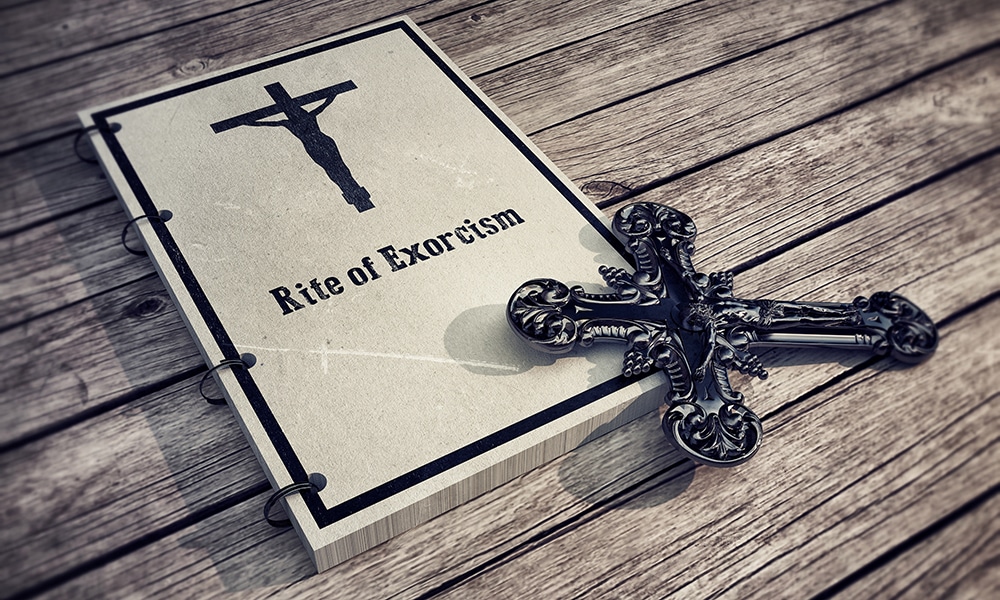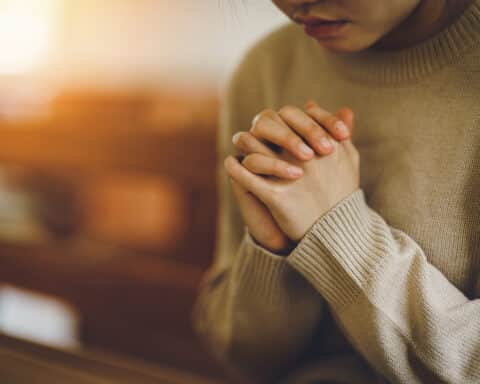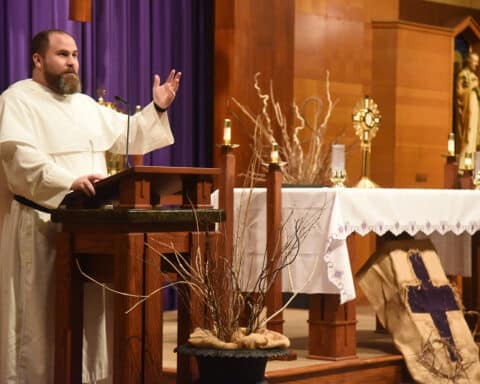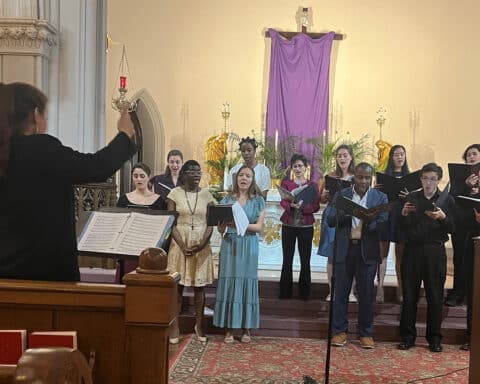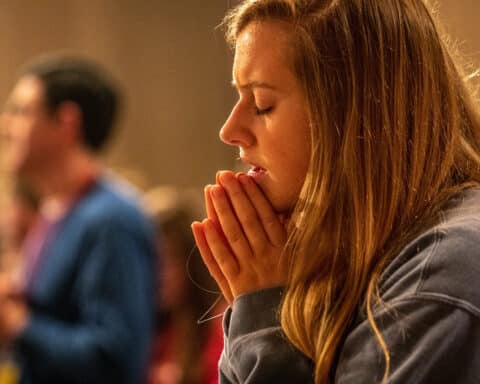
— Lee Moraglio, Hillsborough, North Carolina
Answer: While we are not dealing here with a dogma or official teaching, there is a wide consensus that the demons are fallen from all the ranks of angels and that they retain those ranks or distinctions even in their fallen state. So, among demons there is a kind of hierarchy.
By experience, exorcists know that exorcizing higher-ranking demons is harder than exorcizing lower-ranking ones and that there is almost never just one demon afflicting a possessed person. Demons work in groups or cohorts. Usually a higher-ranking demon oversees a group of lower-ranking demons. Exorcists often will seek to expose the lowest-ranking demons and expel them first, and/or get them to disclose information on the number of demons and the name of the commanding or overseeing demon. In effect, the exorcist breaks through the ranks until he reaches the highest-ranking demon, who then is exposed without its subordinates. What all this means is that demons do have different ranks and powers.
Intelligence among demons also seems to vary, from the experience of exorcists. One of the more surprising experiences that exorcists share is how many demons often are childish and can seem to be dumb as rocks. This may be a distraction and a charade by them to throw an exorcist off guard, but it also may be rooted in the fact that sin darkens the intellect and that pride makes them thin-skinned and vain. Thus they often whine and say and do childish things in an exorcism. Higher-ranking demons, however, are more aloof and cooler. They are also more cunning and subtle in their attacks. Some middle-ranking demons also are fierce and violent. Exorcists and others who participate in exorcisms must always be on their guard not to be easily distracted either by the apparently foolish antics of lower-ranking demons, the violent raging of other demons or the subtle and psychological tricks of higher-ranking demons.
Eucharistic prayer
Question: Our new pastor engages the congregation a great deal during the Eucharistic prayer. He uses dramatic gestures especially at the consecration. Some like this; others are annoyed by it. Are there norms to be followed here?
— Name withheld
Answer: What you describe the priest as doing is inappropriate. The entire Eucharistic prayer is directed to the Heavenly Father, not the congregation. This is also true of the words of consecration, which are not a re-enactment of the Last Supper; rather, they are a part of the offering of the priest as directed to the Heavenly Father.
The norms indicate that the priest should bow himself a bit as he says these words of consecration. Thus theatrical gestures are out of place. This is also one of the unfortunate side effects of Mass facing the people. Many priests get caught up in animating the congregation — a human tendency when before a group of people. But, while the Liturgy of the Word is rightly directed to the congregation, the Liturgy of the Eucharist is directed to the Heavenly Father. Both priests and people should remember this.

